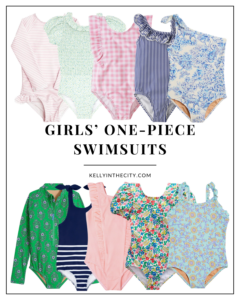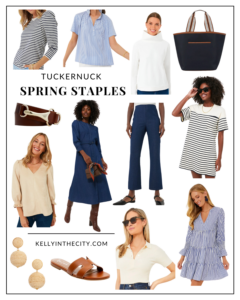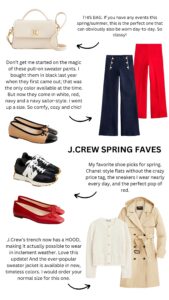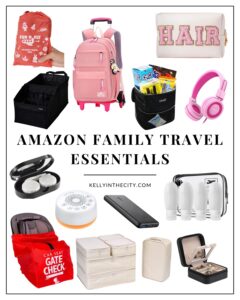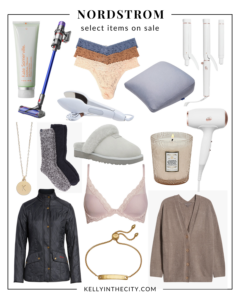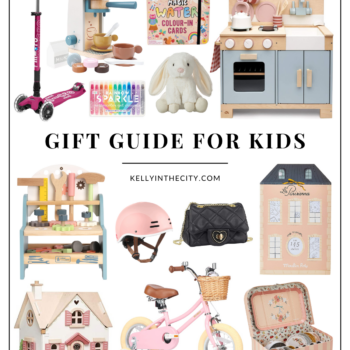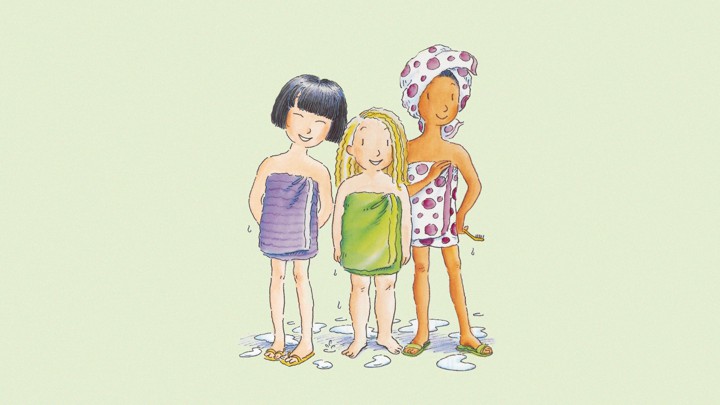
I’m going to go ahead and admit that there has been a lot of “American Girl” talk around these parts lately. From Gammy giving Emma her first Bitty Baby for her second birthday (#omg) to this feature I published on my new friend Sydney’s awe-inspiring artwork, it’s clear that I’ve reverted back to my eight-year-old self. What can I say? I’ve loved being able to pass the joy on to my daughter and watch her discover the magic herself. And yes: I’ve also loved having an excuse to play with the dolls again. Few things take me out of the seriousness of adult life–and remind me of the importance of play–like a good, hourlong American Girl make-believe session.
One of my favorite publications is The Atlantic. (Fun fact: a friend from high school is a senior editor there! Definitely check out her stuff; she’s insanely talented.) And a few weeks ago, I stumbled upon the article titled “The Puberty Book Embraced by Preteens, Parents, and Sex Educators Alike” — the above artwork prominently displayed alongside the headline.
And I was like, “😮!”
I knew those three girls. Oh, I knew them well. As a girl, I’d been too embarrassed to ask my parents for the book, but I’d spotted it at the library right after its publication when I was 13. And after weeks (months?) of building up the courage, I grabbed it off the shelf during a “free read,” found a secluded nook, slipped it behind a physically larger book about something mundane like tree frogs, and tried to speed read while on the lookout for–well, anyone.
In case you aren’t familiar with the American Girl book I’m referring to, it’s called “The Care and Keeping of You: The Body Book for Girls,” and it was originally published 20 years ago in 1998. It was (and still is) designed to be a guide to navigating puberty in an approachable, almost fun kind of way. And it was, without a doubt, better than any health class I ever took as a kid. Easy to read and quite the page-turner. The illustrated book provided me with answers and comfort, much like Pohle, the author of The Atlantic piece, says it did for her.
The rest of the article covers a lot: how in 2013, the original book (intended for readers 8 and up) was updated and a second book (intended for readers 10 and up) was released to both acknowledge that different age groups are ready for certain information at certain times and to account for early-onset puberty; why sex isn’t included and whether the company would ever publish another book covering it; how, exactly, American Girl was able to “normalize the conversation,” making puberty easier to talk about for girls and their parents; why so many parents have felt comfortable giving the book to their daughters; and what might be missing from the pages–from sexual orientation to gender identity.
What had the biggest impact on me, though, were the first-person accounts of now-grown women who read the book as tweens. I found myself nodding along as one woman remembered how the book taught her that she didn’t need to shave her thighs because “that’s an awful lot of leg to shave.” Another recalled how helpful the breast development diagrams were… and the author herself described learning about periods from the book, and how often she referenced “The Care and Keeping of You” over the years.
Yep.
Shortly thereafter the stressful library incident, my mom discovered the book and bought it for me. I tried to be nonchalant about it, saying something like, “Oh, cool. Thanks.” Or maybe I even acted like I didn’t need it. (Could totally see 13-year-old Kelly doing something like that.) But I then sprinted to my room the moment Mom turned her back so I could read everything I’d missed the first go-around. Because, hey: there was quite a bit of information to internalize.
I should note here that I think my parents excellently handled the whole puberty/sex ed thing. I specifically remember my mother being super cool about bra shopping and periods, for example, and both parents being extremely compassionate and helpful when I experienced breakouts or breakups. And while I was a very reserved girl–known to turn lobster red whenever I was even slightly embarrassed–my parents did a great job making me realize that everyone goes through these things. They legitimized my feelings while reminding me that “it’s normal.”
Still, just the article mentions, having “The Care and Keeping of You” was like having a fun aunt or easy-to-talk-to older sister walk me through those confusing years. And that was invaluable. I could process the information on my own time, and I didn’t have to feel embarrassed asking a question since all the questions and answers were laid out for me right there between the pages.
I think both my parents and I also really trusted the book because it came from American Girl–a company that had done so many great things for me as a kid. Yes: in some ways, American Girl was just a source of entertainment. But in others, it preserved my childhood and helped me hold on to my innocence for longer than I otherwise would have. It also instilled a love of reading and eduction in me, and encouraged imaginative play. It’s no wonder we found solace in “The Care and Keeping of You”–so carefully and thoughtfully written–when life became a bit more complicated. Who else would we have wanted to deliver that kind of information? That voice and those illustrations with which I was already so familiar!
And now, many years later, I’m a mom myself, and left to think about how I’ll handle all this with my own daughter. She’s only two years old, so we’re obviously a while off, but I know for sure that I’m going to one day give her “The Care and Keeping of You. Or something similar. And I’ll probably do it a bit on the earlier side, so she’s less likely to be embarrassed by the material and more likely to want to talk about it. Hopefully we’ll read it together.
And even though she’s only a toddler, I feel like it’s never too early to start encouraging discussion in general. And to start cultivating a sense of openness between us. Kids can ask an overwhelming number of questions, and I’ll admit that when we hit question #26 by 6:45 a.m., I’m usually ready to direct our attention elsewhere. “Hey, should we go to the park? I think the sun’s up! Do you mind if we stop at Dunkin’ Donuts on the way?” But it’s great that she’s so inquisitive, and I always want her to feel comfortable asking me all the questions. So tomorrow, I vow to go all the way to question #53, and provide thorough and thought-out answers that, again, encourage discussion.
Question #48: What is Beale doing right now?
Answer #48: Noodle’s sleeping! See how her eyes are closed? Do you hear her snoring? That’s how we know she’s sleeping.
Question #49: My favorite color is pink! What’s Beale doing now?
Answer #49: Noodle’s still sleeping. She hasn’t opened her eyes yet or stopped snoring, so I bet she’s really tired. What do you think she’s dreaming about?
;)
Another little thing I’m doing is welcoming Emma into the bathroom after I shower and get dressed. She loves it. She watches me get ready and goes through my stuff, and we talk. Sure, it’s a complete mess, and I think I spend more time cleaning up than I do actually getting ready. 😂 Right now, we’re mostly talking about soap, shampoo, makeup, moisturizer and deodorant. Fascinated by that one, haha. But we chat about what everything’s for and when she’ll start doing some of the more “adult” things, too… and we brush our teeth and do our hair together. I just try my best to make it all seem fun and exciting. While it’s adorable, my hope is that as she gets older, the conversation will naturally mature–and she’ll have an easier time. Maybe it’ll even be exciting?
“I’m ____ years old! I finally get to shave my legs!”
This could all be wishful thinking. Maybe that awkwardness and embarrassment is unavoidable, and it’s just something all tweens and teens go through. Regardless, thinking about how we’ll approach puberty–and later, sex–with our kids is so important, no matter how young they are right now.
I love this line that Pohle highlighted from “The Care and Keeping of You,” because it resonated so much with me in my more vulnerable years, and truly helped.
“The more you know about your body, the less confusing and embarrassing growing up will seem—and the easier it will be to talk about.”
Did you read “The Care of Keeping of You” growing up? Or something similar? How did it affect you? Have you given any thought to how you’ll approach subjects like puberty and sex with your children one day?
If you enjoyed this post, you might also like these recent posts:
Would You Let Your Kid Watch The Little Mermaid?
Personal Lessons Learned from 5 Years of Blogging




